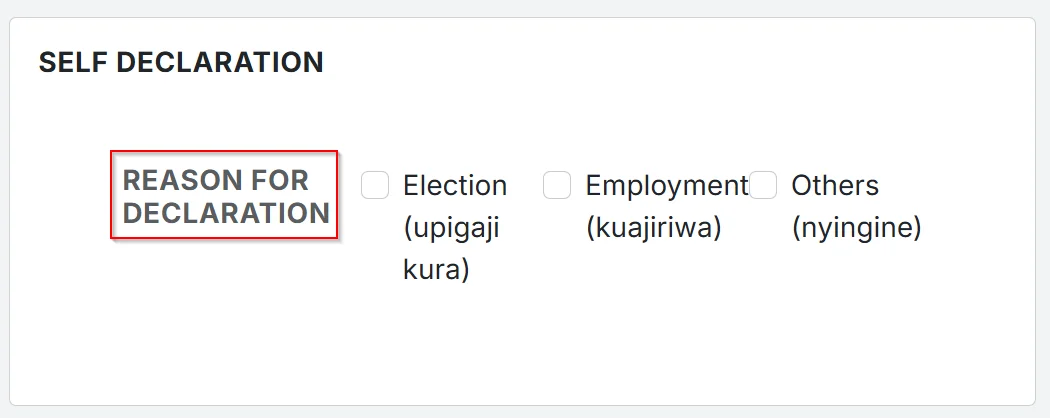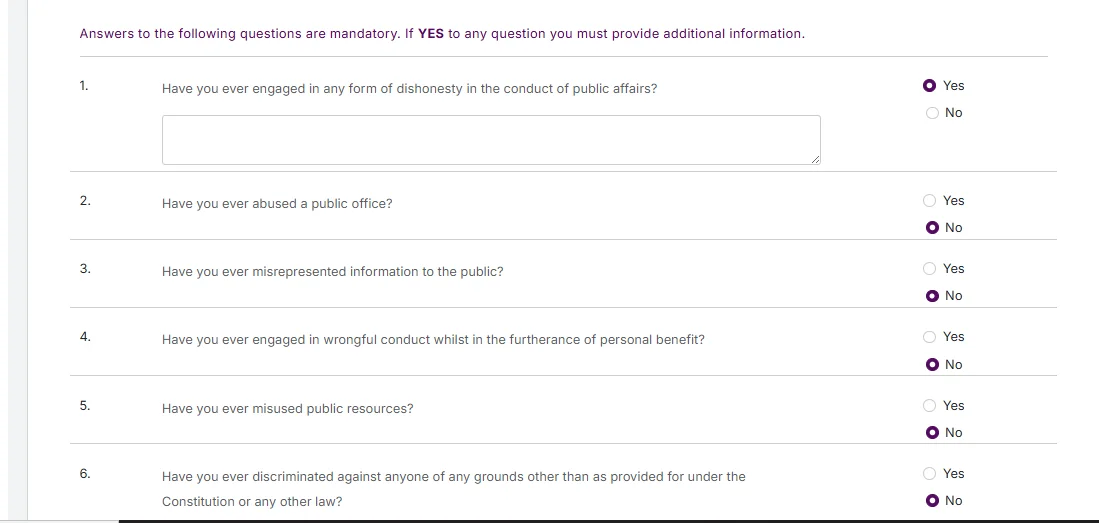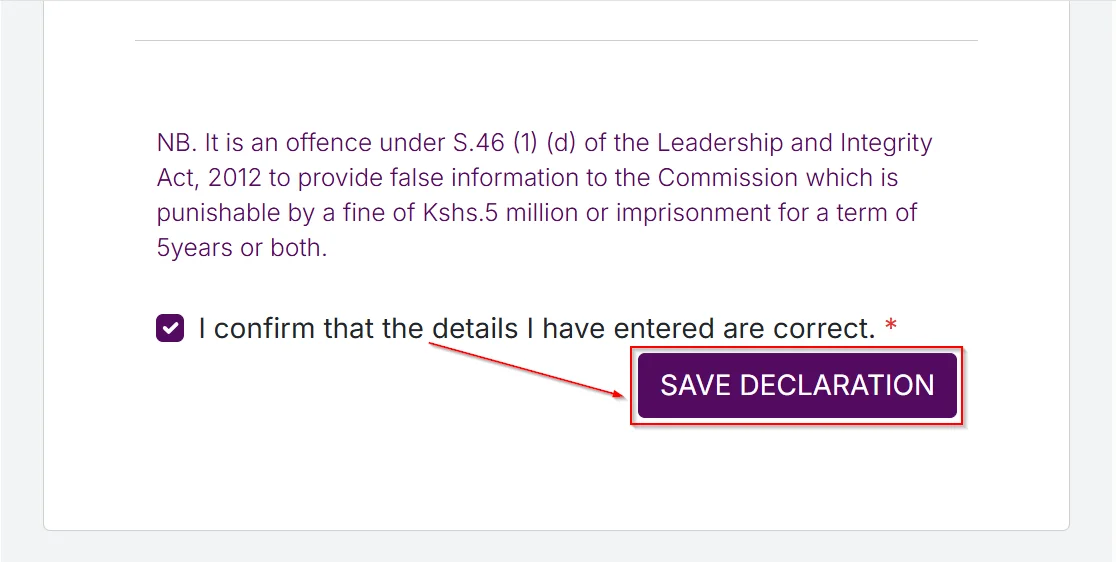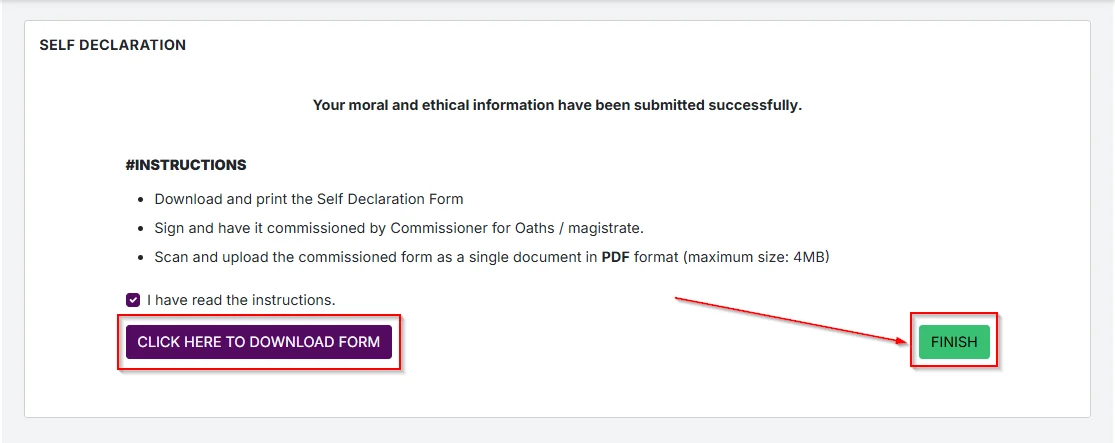This is an online platform that allows you to access the Ethics and Anti-Corruption Commission's digital services.





The law demands that state or public officers apply for clearance to the Ethics and Anti-Corruption Commission (EACC) for offshore bank accounts including those opened for temporary purposes such as facilitation of travel, education or medica treatment.
An offshore bank account is a financial account held in a jurisdiction outside of the depositor’s country of residence. In this context, it is a foreign bank account opened by or controlled by a state or public officer.
These are individuals holding various public offices at the national and county levels, as well as other positions of authority or responsibility within government institutions and bodies. They include the President, Deputy President, Governors, Members of Parliament, members of county assemblies as well as judges. Teachers employed by the Teachers Service Commission (TSC) too are public officers.
The simple answer is Article 76(2) of the Constitution and complemented by Section 19 (4) and 52 of the Leadership and Integrity Act. It stipulates that State Officers are prohibited from opening or operating bank accounts outside Kenya without prior approval from the Ethics and Anti-Corruption Commission (EACC). This provision aims to ensure transparency, accountability, and integrity in the financial affairs of State Officers.
The requirement for EACC approval serves multiple purposes. Firstly, it acts as a safeguard against potential misuse of public office for personal financial gain. By seeking approval, State Officers demonstrate transparency and accountability in their financial dealings. Secondly, it helps prevent illicit financial flows and money laundering, as offshore accounts can sometimes be used to conceal ill-gotten wealth or engage in corrupt practices.
State Officers found in breach of Article 76(2) of the Constitution and Section 19 of the Leadership and Integrity Act may face legal consequences and disciplinary action. This could include investigations by the EACC, sanctions such as fines or removal from office, and in severe cases, criminal prosecution. The regulations underscore the seriousness with which Kenya addresses issues of integrity and ethical conduct among its public officials.
A state or public officer shall be liable to imprisonment for a term not exceeding five years or a fine not exceeding five million shillings or both.
By enforcing strict regulations on offshore bank accounts for State Officers, Kenya strengthens its governance framework and anti-corruption measures. Upholding integrity and transparency in financial matters is essential for fostering public trust in government institutions and ensuring that public resources are utilised for the benefit of the citizens. Moreover, it sends a strong message that Kenya is committed to combating corruption and promoting ethical leadership at all levels of governance.
While the regulations generally apply to all State Officers, there may be exceptional circumstances where offshore bank accounts are necessary for official purposes, such as diplomatic missions or international agreements. In such cases, State Officers must still obtain approval from the EACC and ensure that the use of offshore accounts complies with legal and ethical standards.
Members of the public play a crucial role in holding State Officers accountable for their actions. They can report any suspicions or instances of non-compliance with offshore bank account regulations to relevant authorities such as the EACC or other oversight bodies. Public scrutiny and engagement are vital for maintaining the integrity of Kenya’s governance system and combating corruption effectively.
Under the Public Officer Ethics Act, non-monetary gifts are permissible but must be declared, while gifts valued above Sh20,000 must be surrendered.
Section 14 of the 2012 Leadership and Integrity Act reinforces this obligation, requiring civil servants to report any gifts received. It also stipulates that public entities maintain a detailed register of gifts received or given, treating gifts presented to state officers during official events as state property.
The law provides that a gift or donation given to a State or Public Officer on a public or official occasion is a gift or donation to the State and shall be surrendered to the State. However, the law provides exemptions when a State or a Public Officer may receive and retain a gift. These include: a gift given in ordinary bounds of courtesy and protocol, a gift of a non- monetary nature not exceeding the value prescribed by EACC and a gift from a relative or friend on an occasion recognized by custom.
The law expressly prohibits any gifts or hospitality given with the intention of compromising the integrity, objectivity or impartiality of the State or Pubic Officer. Some gifts such as jewellery, precious metal or stones, ivory or other animal part categorized as prohibited by law. The law obligates each public entity to maintain a register of gifts received and those given to other organizations.
Ethics and Anti-Corruption Commission gathers information on corruption occurring in Government and the public Sector from a variety of sources. These sources include members of the public, heads of government departments and agencies, officials working in both the public and private sectors and the media. The reports can be made at the EACC Headquarters (Integrity Center), Our Regional Offices and all Huduma Centers countrywide.
Search our site